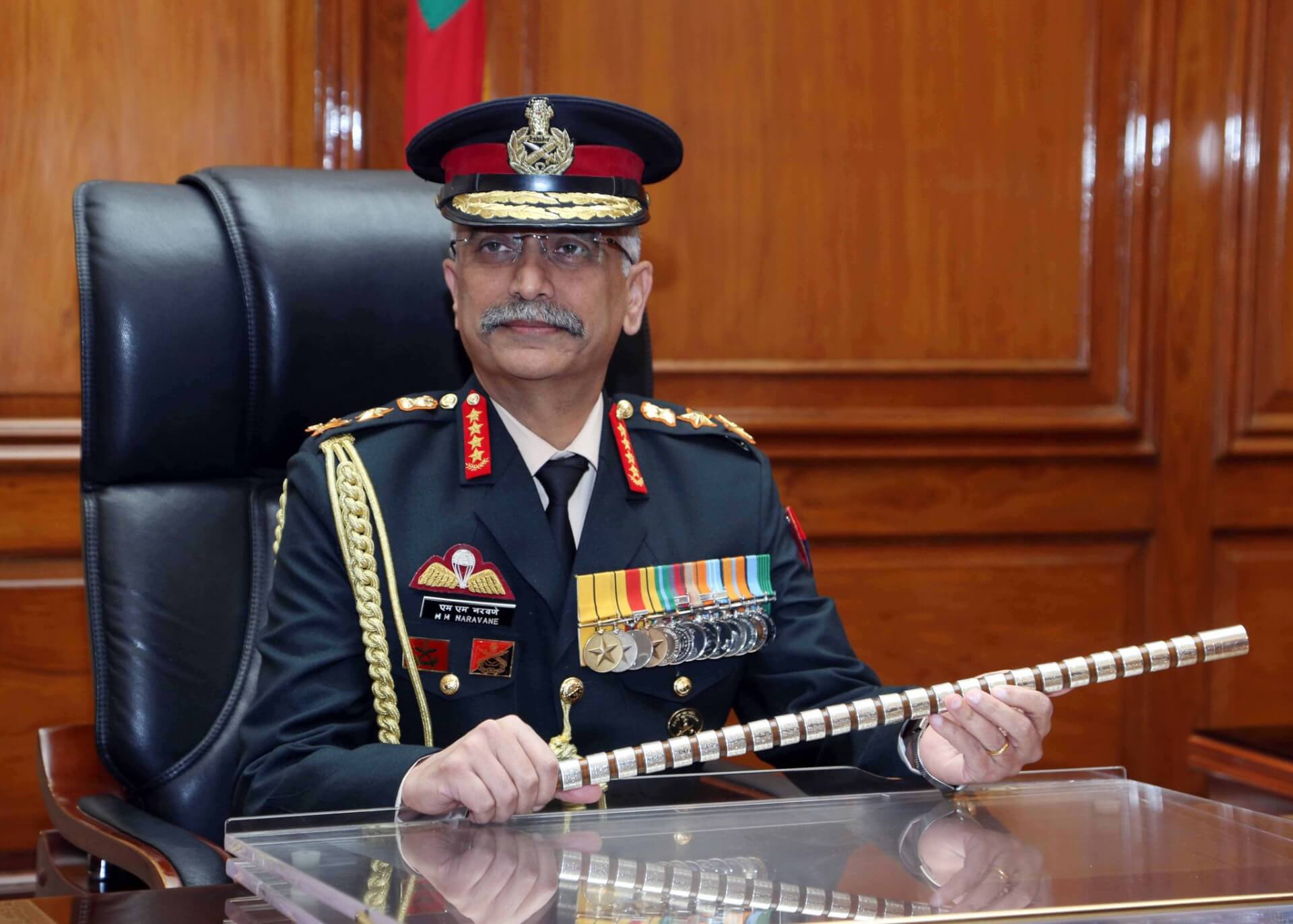Over the last two days, Indian Army Chief General Manoj Mukund Naravane has spoken on simmering tensions with Nepal, China, and Pakistan, and on growing instability in the Kashmir valley.
Last week, Nepal objected to India’s decision to inaugurate an 80-kilometer road in Uttarakhand, which will run through the contested Lipulekh Pass, to allow Indian pilgrims to reach Kailash Mansarovar. The Nepali government launched an official protest by summoning the Indian Ambassador to Nepal, Vinay Mohan Kwatra, and handing him a note saying that detailed its objection to the road as it believes that it runs through Nepali territory.
In response, the Indian army chief reiterated India’s position that the east of the Kali river is Nepalese territory, while the west of it is Indian territory. Naravane stressed that the “road we have built is west of the river”. He added that Nepal may be acting “at the behest of someone else”, hinting that it may be China. In fact, there is cause for concern that India’s relationship with Nepal is deteriorating as the latter forges a stronger relationship with China. This latest incident is sure to destabilize already fragile relations between India and Nepal.
Alongside mounting tensions with Nepal, this week also saw a skirmish between Indian and Chinese troops in both Eastern Ladakh and Northern Sikkim, which resulted in injuries on both sides. In Ladakh, army sources claim that the fistfight began after Chinese troops objected to the presence of Indian troops in the disputed lake area. On the other hand, in Northern Sikkim, a brawl broke out after a People’s Liberation Army (PLA) patrol was stopped by Indian forces. India and China have conflicting perceptions of undemarcated boundaries in the region, which has led to continued tensions.
Gen Naravane sought to downplay both events, saying the two incidents were not linked and that the situation is being mutually and amicably resolved as per established protocols and the strategic guidelines laid down by Prime Minister Narendra Modi. These guidelines were agreed upon by both parties at the informal summits in Wuhan in 2018 and in Mamallapuram in 2019. Naravane said that one should not “read too much into” such scuffles as they are “very common” and “business as usual”. Moreover, he conceded that there was “aggressive behavior” by both sides.
In addition, there has also been increased instability in the Kashmir valley after Indian forces killed two Lashkar-e-Taiba (LeT) terrorists in Handwara and the Hizbul Mujahideen leader Riyaz Naikoo in Beighpora. Naikoo’s death, in particular, has prompted widespread protests across Kashmir, and Indian authorities have responded with internet shutdowns once more, potentially leading to further unrest. Many of the terror groups operating in the region are headquartered in Pakistan or receive significant support, financial or otherwise, from there. In fact, there is ample evidence of Pakistani state-sponsored terrorism in Kashmir.
Acknowledging this instability, Naravane noted that Pakistan has created a new terror group in Kashmir called ‘The Resistance Front’ (TRF). The army chief said that the group should be renamed as the ‘Terror Revival Front’ as it is being “supported by its proxies across the border”. The TRF is an off-shoot of the terror group LeT and is also linked with other terrorist groups such as Hizbul Mujahideen and Jaish-e-Mohammed (JeM). It is believed that Pakistan launched the TRF to avoid being blacklisted by the Financial Action Task Force (FATF), the United Nations Security Council’s sanctions committee, so that it isn’t seen funding a known and universally recognized terrorist group. By using a non-Islamic name to make TRF look like an indigenous rebel movement with less of an overtly religiously-motivated objective, Pakistan seeks to bring various terror groups under one common non-religious umbrella and undermine India’s claim to and control over Kashmir.
At the recent Non-Aligned Movement (NAM) meet, Prime Minister Narendra Modi made a dig at Pakistan, saying, “Even as the world fights COVID-19, some people are busy spreading other deadly viruses. Such as terrorism.” This thinly-veiled rebuke of Pakistan was once again repeated by Minister of External Affairs Subrahmanyam Jaishankar at the Shanghai Cooperation Organization (SCO) videoconference, where he referred to “new viruses”, like terrorism, being spread by “others”.
Likewise, Gen Naravane said more terrorists were infiltrating from across the border due to more conducive weather conditions, given the reduced or absent snow-cover. He added that while India’s diplomats are prepared to tackle Pakistan’s increasing attempts to internationalize the Kashmir issue, the armed forces are prepared to confront increased counter-insurgencies. In fact, sensing possible retaliation from India, Pakistan increased fighter aircraft patrols along the border.
Thus, over the past two days, the Indian army has addressed escalating tensions with Nepal, China, and Pakistan and within India’s own borders in Kashmir.
Indian Army Chief Addresses Simmering Tensions with Nepal, China, and Pakistan
May 15, 2020

IMAGE SOURCE: INDIAN MINISTRY OF DEFENCE VIA TWITTER
